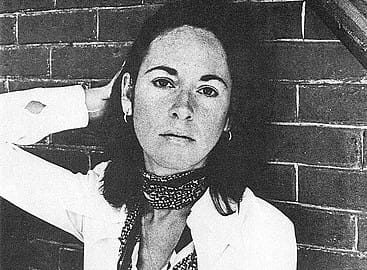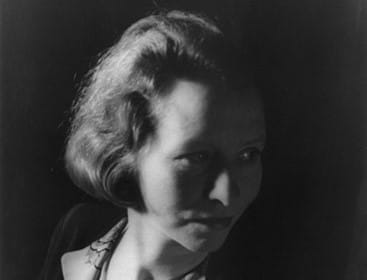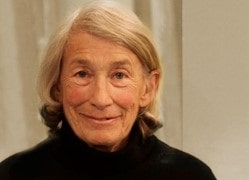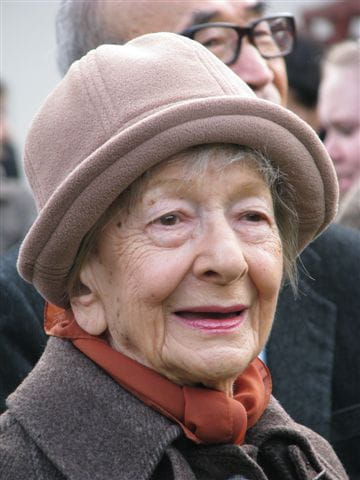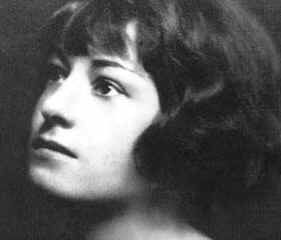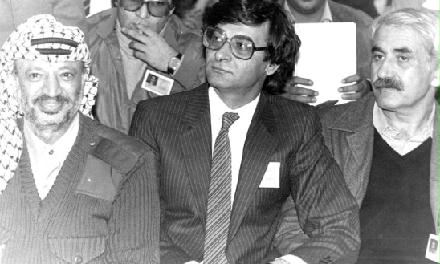10 of the Best Poems of Claude McKay
Claude McKay, a Jamaican-American poet, flourished during the Harlem Renaissance of the 1920s. His poems challenged white supremacy openly. McKay was straightforward in the matter of racism. He openly criticized it for its inherent flaws, stupidity, and meaninglessness. In his lifetime, McKay published four poetry collections that include Songs of Jamaica (1912), Constab Ballads (1912), Spring in New Hampshire and Other Poems (1920), and last but not least, Harlem Shadows (1922). His Harlem Shadows was one of the first works published during the Harlem Renaissance. It is regarded as his most popular work.
In the following list, we are going to present some of the well-known poems of Claude McKay. There are a total of 10 best poems on our list that explore the significant themes in McKay’s overall body of works.
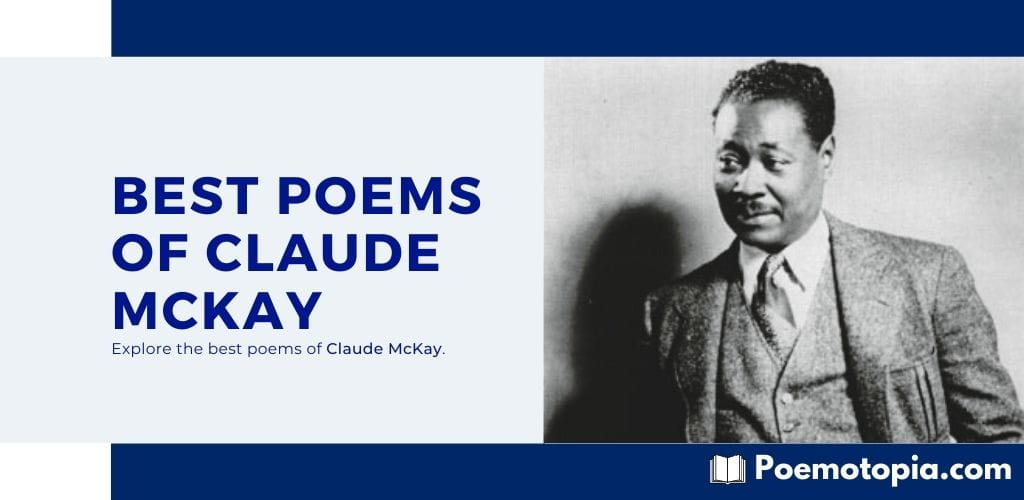
If We Must Die
“If We Must Die” is one of the most famous poems of Claude McKay, and according to the poet Gwendolyn Brooks, it is among the best poems of all time. It was written in protest of the attacks on the African-American communities in the Red Summer. This poem was first published in July 1919.
It is written in the form of a Shakespearean sonnet. Through this poem, McKay calls for his people to fight against those who are killing their men. The following lines are the oft-quoted ones from this piece.
O kinsmen! we must meet the common foe!
Though far outnumbered let us show us brave,
And for their thousand blows deal one death-blow!
What though before us lies the open grave?
Like men we’ll face the murderous, cowardly pack,
Pressed to the wall, dying, but fighting back!
Harlem Shadows
The poem “Harlem Shadows” appears in Claude McKay’s well-known book of poetry, Harlem Shadows. This poem is about the African-American sex workers of Harlem of the 19th century.
I hear the halting footsteps of a lass
In Negro Harlem when the night lets fall
Its veil. I see the shapes of girls who pass
To bend and barter at desire’s call.
Ah, little dark girls who in slippered feet
Go prowling through the night from street to street!
Through this poem, McKay shares his sympathy for those little girls who were out on the streets due to poverty. He writes,
Ah, stern harsh world, that in the wretched way
Of poverty, dishonor and disgrace,
Has pushed the timid little feet of clay,
The sacred brown feet of my fallen race!
Ah, heart of me, the weary, weary feet
In Harlem wandering from street to street.
America
It is another best-known sonnet of McKay. This piece is about the cruel treatment the poet received while growing up in America. Though living in this country has inflicted severe pain on his heart, he still loves this “cultured hell”. Why? McKay says:
… I will confess
I love this cultured hell that tests my youth.
Her vigor flows like tides into my blood,
Giving me strength erect against her hate,
Her bigness sweeps my being like a flood.
Yet, as a rebel fronts a king in state,
I stand within her walls with not a shred
Of terror, malice, not a word of jeer.
However, in the last few lines, he emphatically mourns for the “priceless treasures”, a reference to the African-American people, that gradually sank in the sand.
Beneath the touch of Time’s unerring hand,
Like priceless treasures sinking in the sand.
I Shall Return
This piece belongs to McKay’s poetry collection Harlem Shadows. It is written in the form of a Shakespearean sonnet. In this poem, the poetic persona talks about his strong wish to return to his homeland, in close proximity to nature. Nature is shown as a healer that is going to cure his “long years of pain”. Hence, he uses the repetition of the phrase “I shall return” a number of times throughout the poem.
I shall return again; I shall return
To laugh and love and watch with wonder-eyes
At golden noon the forest fires burn,
Wafting their blue-black smoke to sapphire skies.
I shall return to loiter by the streams
That bathe the brown blades of the bending grasses,
And realize once more my thousand dreams
Of waters rushing down the mountain passes.
I shall return to hear the fiddle and fife
Of village dances, dear delicious tunes
That stir the hidden depths of native life,
Stray melodies of dim remembered runes.
I shall return, I shall return again,
To ease my mind of long, long years of pain.
Enslaved
“Enslaved” is another of Claude McKay’s most famous poems. It was first published in July 1921 during the Harlem Renaissance. This sonnet is written in response to the enslavement of black people. McKay expresses his grudge and pain when he finds his people are denied their rights, even a place to live in. McKay strongly wishes to liberate them from the yoke through these lines:
Then from the dark depths of my soul I cry
To the avenging angel to consume
The white man’s world of wonders utterly:
Let it be swallowed up in earth’s vast womb,
Or upward roll as sacrificial smoke
To liberate my people from its yoke!
Flame-Heart
The term “Flame-Heart” is a metaphor for a youth’s heart that is glowing with life, vigor, and spontaneity. McKay nostalgically looks at the days of the past when his heart was in that state. At that time, he was close to nature. He enjoyed its beauty, had its delicacies, and most importantly, felt fresh. Let’s explore the first few lines of the poem.
So much have I forgotten in ten years,
So much in ten brief years; I have forgot
What time the purple apples come to juice
And what month brings the shy forget-me-not;
Forgotten is the special, startling season
Of some beloved tree’s flowering and fruiting,
What time of year the ground doves brown the fields
And fill the noonday with their curious fluting:
I have forgotten much, but still remember
The poinsettia’s red, blood-red in warm December.
The Harlem Dancer
This poem centers on a dancer of Harlem. The poet vividly captured how her body sways and her voice melodiously imitates the flutes. She is the star of the show. However, in the end, the poet zooms into her “falsely-smiling face” that reflects her lost self. Here are a few lines from the sonnet.
She sang and danced on gracefully and calm,
The light gauze hanging loose about her form;
To me she seemed a proudly-swaying palm
Grown lovelier for passing through a storm.
Upon her swarthy neck black shiny curls
Luxuriant fell; and tossing coins in praise,
The wine-flushed, bold-eyed boys, and even the girls,
Devoured her shape with eager, passionate gaze;
But looking at her falsely-smiling face,
I knew her self was not in that strange place.
A Red Flower
It is one of the love poems of Claude McKay, apart from his Harlem poems. This piece depicts a red flower in the form of a lady whom the poet would kiss like a bee. McKay beautifully expresses his love for a lady or the red flower by using natural metaphors.
Your lips are like a southern lily red,
Wet with the soft rain-kisses of the night,
In which the brown bee buries deep its head,
When still the dawn’s a silver sea of light.
(…)
O were I hovering, a bee, to probe
Deep down within your scented heart, fair flower,
Enfolded by your soft vermilion robe,
Amorous of sweets, for but one perfect hour!
After the Winter
This piece reveals McKay’s love for nature. He describes how nature takes renews at the end of winter. The coming of summer fills the landscape with bamboo and cotton trees. Bees buzzing sound keeps resonating, and the fresh ferns adorn the landscape with its unfading green. Let’s explore how the poet appreciates the summer landscape in this poem.
And we will seek the quiet hill
Where towers the cotton tree,
And leaps the laughing crystal rill,
And works the droning bee.
And we will build a cottage there
Beside an open glade,
With black-ribbed blue-bells blowing near,
And ferns that never fade.
The Tropics in New York
In this poem, McKay reminiscences the Caribbean delicacies. The speaker imagines how it felt to be in his homeland, enjoying the landscape filled with exquisite colors. Life in New York has made him so discouraged that he finds it difficult to control his emotions.
Bananas ripe and green, and ginger-root,
Cocoa in pods and alligator pears,
And tangerines and mangoes and grape fruit,
Fit for the highest prize at parish fairs,
(…)
My eyes grew dim, and I could no more gaze;
A wave of longing through my body swept,
And, hungry for the old, familiar ways,
I turned aside and bowed my head and wept.
FAQs
Some of the most famous poems of Claude McKay include “If We Must Die”, “Harlem Shadows”, “America”, “I Shall Return”, “Enslaved”, “Flame-Heart”, “The Harlem Dancer”, etc.
Claude McKay is best known for his poem “If We Must Die”. It was written in 1919 in protest of the white-on-black race riots and lynchings.
External Resources
- Full Text of Harlem Shadows (1922) — Read the poems published in McKay’s well-known poetry collection.
- About Harlem Renaissance — Learn about the Harlem Renaissance.
- About Claude McKay — Read about the poet’s life.
- Poet Profile & Poems of Claude McKay — Learn more about the poet and explore more of his poems.

